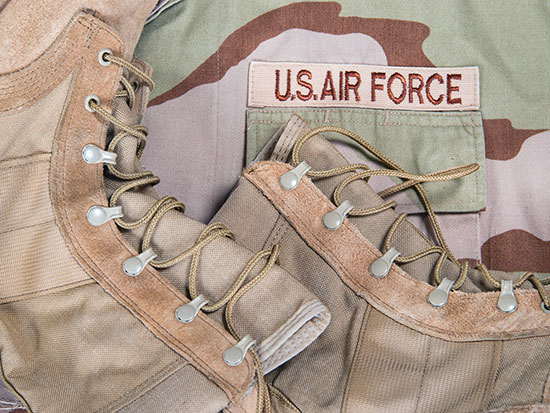 The University of Alabama at Birmingham School of Health Professions’ Recognition and Evaluation of Autism Contact Training, or REACT, program — a partnership with the Interaction Advisory Group — has been awarded a grant by the Alabama Council on Developmental Disabilities to train more than 200 United States Air Force security forces and first responders on how to recognize and respond to people with autism and other developmental disabilities.
The University of Alabama at Birmingham School of Health Professions’ Recognition and Evaluation of Autism Contact Training, or REACT, program — a partnership with the Interaction Advisory Group — has been awarded a grant by the Alabama Council on Developmental Disabilities to train more than 200 United States Air Force security forces and first responders on how to recognize and respond to people with autism and other developmental disabilities.
The new training initiative will be held in Montgomery, Alabama, at Maxwell Air Force Base, which is home to the center for professional military education — Air University.
“Security forces are trained to respond to a crisis situation with a certain protocol, but this protocol may not always be the best way to interact with individuals with autism,” said Damon Salter, the chief of training for 42nd Security Forces Squadron. “Because they are usually the first to respond on scene, it is critical they have a working knowledge of autism and the wide variety of exhibited behaviors.”
The grant and project, known as Project Companion, runs through Oct.18, 2018. The initiative is specific to trainings for those serving in the military, but there are discussions to include free community workshops and town hall meetings. The expanded program would help families with members who have autism or other developmental disabilities understand best practices in interacting with first responders, law enforcement officers and others they may encounter in their day-to-day activities.
“It is important not only to understand how they may react, but to understand how we should act, too,” said Lt. Col. Kim Crawford, commander of 42nd SFS.
The USAF Exceptional Family Member Program, a U.S. Department of Defense program that works with military and civilian agencies, say Project Companion representatives, is the first instance they know of that a military base has taken part in a program that educates military security in recognizing and responding to people with autism and other developmental disabilities.
| “There is a saying that, if you have met one person with autism, then you have met one person with autism, so it is critical that our protectors have the tools to recognize and understand the many possibilities surrounding each encounter with a person with autism or other developmental needs, and that they know how best to respond in each interaction.” |
“As a mother to an awesome special-needs child myself, I have some understanding of the challenges our EFMP families face on a daily basis,” said Col. Melissa Stone, 42nd Air Base Wing vice commander. “We owe it to these families to understand their situations and learn how we can best offer support. Caring for families with special needs is not something unique to the military community, and we are hopeful that initiatives like Project Companion will also resonate to a broader audience.”
The Alabama Council on Developmental Disabilities, which funds the grant, is a federally funded program established in 1971. It has delivered hundreds of thousands of dollars in grants “to promote and support independence, advocacy, productivity and inclusion for Alabamians with developmental disabilities.” This grant marks the first time ACDD has partnered with the REACT program.
Project Companion’s first in-person training session at Maxwell Air Force Base was conducted in October 2017. Dustin Chandler, president and co-founder of IAG, delivered the initial training to security forces, firefighters and medical personnel from Maxwell AFB. Further training will be delivered online using an asynchronous method that is specially designed for self-paced learning without an instructor present.
“The REACT program is designed to directly assess each learner’s knowledge to ensure the information is fully understood, because the skills to immediately recognize and assess a situation are invaluable for law enforcement members, first responders and the communities they serve,” said Harold P. Jones, Ph.D., dean, UAB School of Health Professions. “There is a saying that, if you have met one person with autism, then you have met one person with autism, so it is critical that our protectors have the tools to recognize and understand the many possibilities surrounding each encounter with a person with autism or other developmental needs, and that they know how best to respond in each interaction.”
“IAG wanted to focus on military families, and what better way to do so than to train their security forces and other first responders how to recognize and interact with their loved ones who may be living with special needs,” Chandler said. “We want to foster an environment of safety for officers and citizens, as well as raising the level of understanding of those families they are serving alongside. The IAG partnership with UAB allows us to do that.”